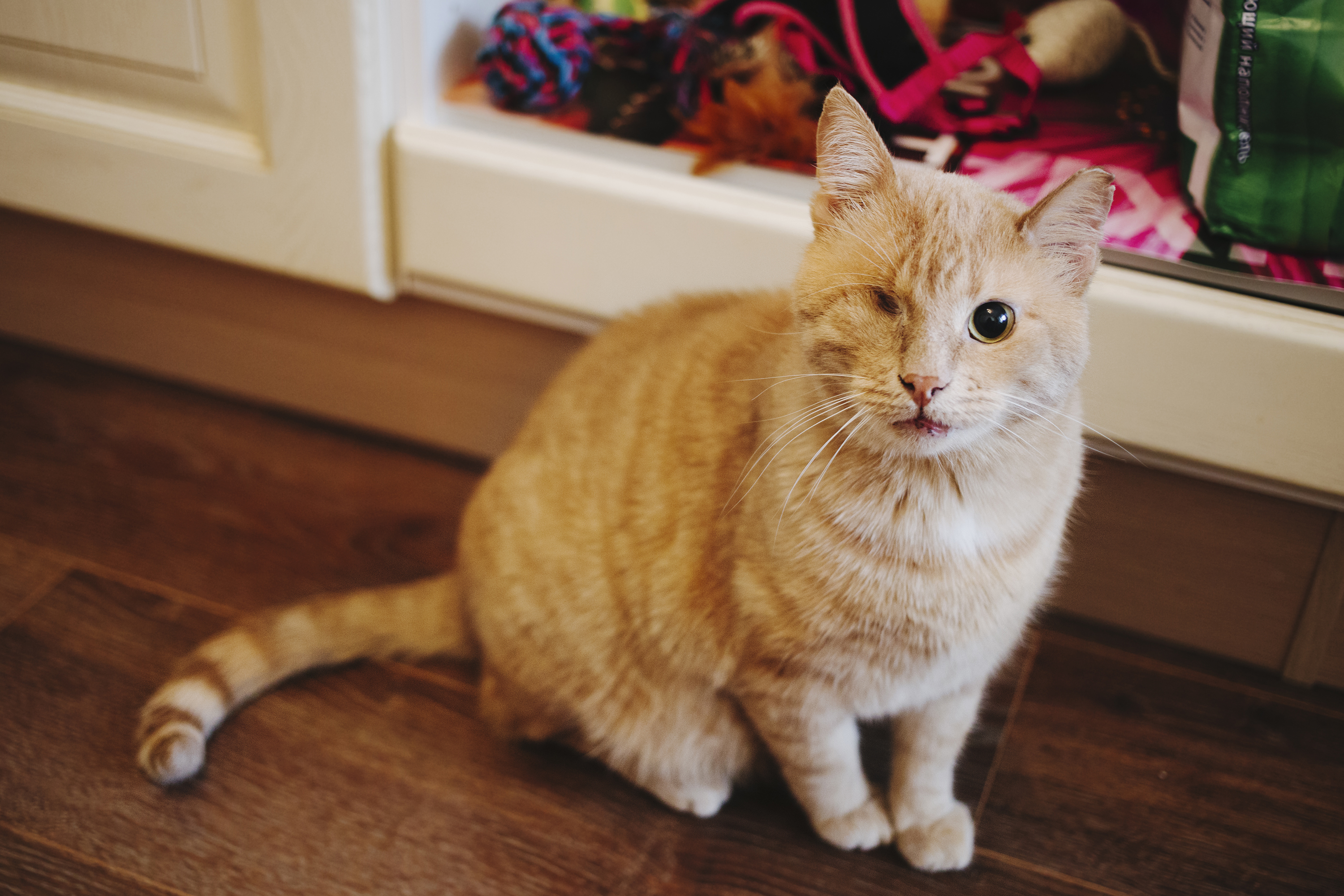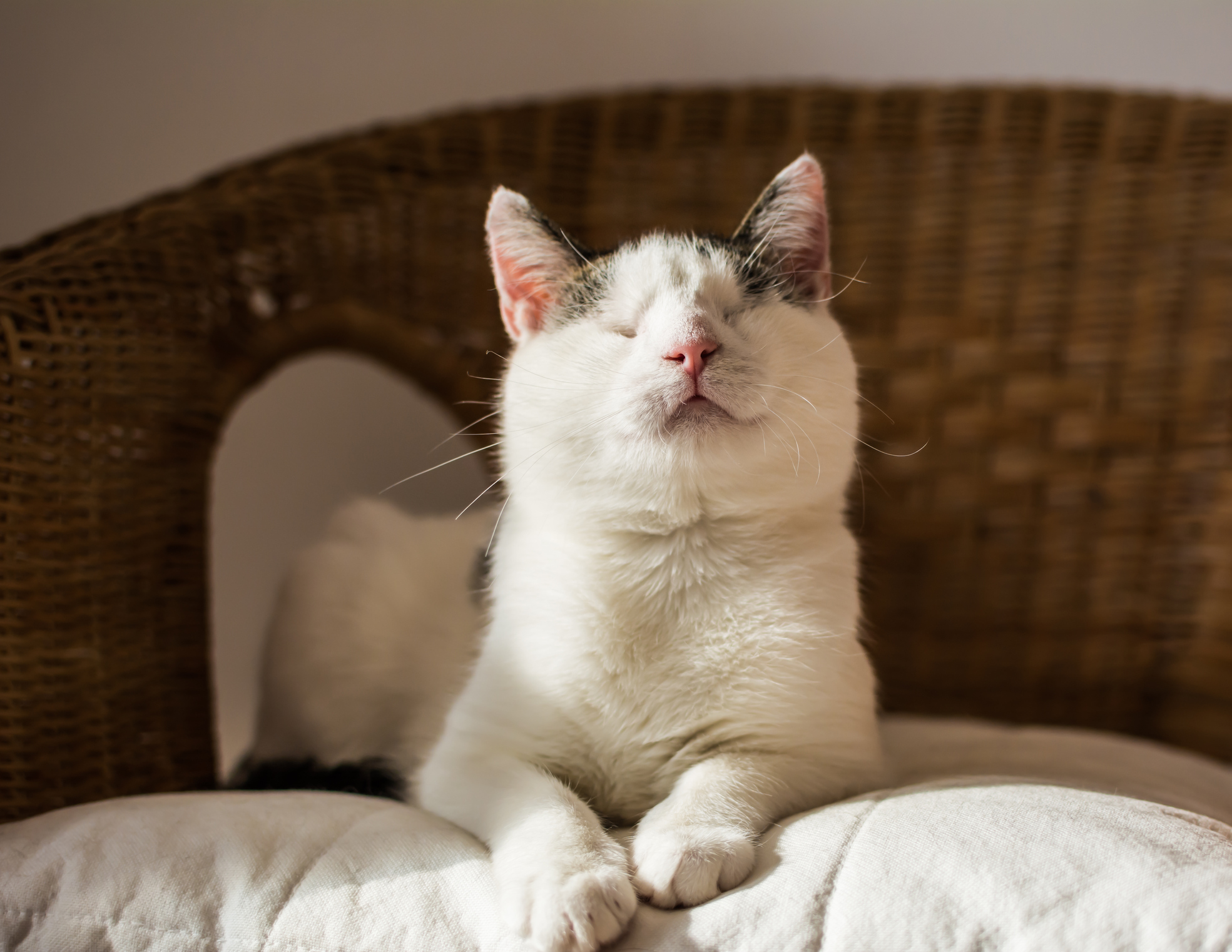
How to Care for a Cat with Vision Impairments
Cats are susceptible to a wide range of vision problems, especially as they age. While some of these conditions might be treatable, others may cause blurry or impaired vision or even total blindness. Of course, the degradation or total loss of one of your cat’s senses can be disorienting and even dangerous to their health.
Whether your beloved furry friend is aging and developing vision problems or you’re planning to adopt a cat with an existing eye condition, you may need to make some adjustments to your home and care plan to accommodate their “new normal.”
The effects of vision loss on cats

Although cats rely heavily on their senses of smell and sound, they do still rely on their sight in daily life. Cats have extraordinary vision that helps them scout their surroundings and track prey. Their sight is particularly profound at night, and they have excellent depth perception.
When a cat’s vision is impaired, they begin to compensate by smelling and hearing the world around them. Unfortunately, they won’t be able to pick up on everything through sound and smell. This can lead to disorientation, startlement and stress.
Every cat will cope with vision impairments in a slightly different way. Generally speaking, though, cats who develop sudden vision problems or blindness tend to be more disoriented and stressed than cats whose vision problems develop gradually. A gradual decline in vision quality helps your cat slowly adjust to the changes and learn how to rely on their other senses faster. Thus, slightly different approaches might be necessary if your cat suffered a traumatic eye injury versus if they slowly developed cataracts.
Helping your kitty cope

Once you’re aware of your cat’s vision problem, there are many things you can do to help them cope. With your help, your cat can live a full and happy life, even with limited or no vision.
- Stay in contact with your vet: If your cat has a degenerative vision problem that hasn’t resulted in total blindness, you may be able to preserve what’s left of your cat’s sight. As soon as you notice the signs of vision impairment or eye problems in your feline friend, visit the vet to get a diagnosis. Implementing a treatment plan and staying in contact with your vet can help slow or stop further degradation of your cat’s eyesight.
- Re-teach your cat the lay of the land: Cats who experience sudden blindness due to trauma will be forced to adjust to the fact that their familiar surroundings are now strange and scary. To help them re-learn how to navigate in your home, treat your cat like a kitten and expose them to small parts of the home at a time, starting with a single room. Learning how to make their way around in smaller chunks can make the reorienting process much more manageable.
- Move the essentials: If your home has stairs, landings or other uneven areas, these could pose safety risks to your vision-impaired cat. To make navigating your home easier, relocate any essential items, such as their bed, toy box, litter box and food and water bowls, to a centralized area on the main floor. This way, your cat will be able to get to everything they need without struggling on stairs or ledges. Once those items are relocated, help your cat learn their new locations by assisting them throughout the room. Avoid moving these items for any reason. Your cat will use their memory to navigate to them, and moving their bowls, bed or little box abruptly can cause significant distress.
- Keep your home clean and consistent: In the same way your cat will rely on their memory to get to their essential items, they will also commit your home’s floorplan to memory in order to navigate smoothly. For this reason, it’s very important to keep your home as clean and consistent as possible. Don’t rearrange all of your furniture in a single day, and try to put things where they belong to prevent clutter from blocking your cat’s typical path. If you do need to move things around, try to do it gradually so your cat has more time to adjust.
- Make noise when approaching: Blind or visually impaired cats won’t be able to see you approaching, and repeatedly startling them could cause your cat distress. Although they will be able to pick up on noise and your scent once you get close, it’s important to remember to not accidentally sneak up on them. Any time you approach your cat, speak to them in a calm voice so they know you’re there, and let them sniff your hand or clothing before you pet them.
- Keep your kitty oriented and sharp: The way you interact with your cat on a daily basis might need to change. Avoid carrying your cat from one part of the home to another. This can confuse them as they attempt to reorient themselves. You might also want to use new toys or tools to stimulate their other senses, such as toys that make noise or strong-smelling food or treats, for both entertainment and training.
With a little reorienting and a lot of patience, your cat should be able to adjust to their new life with impaired vision and be just as happy and healthy as ever.


